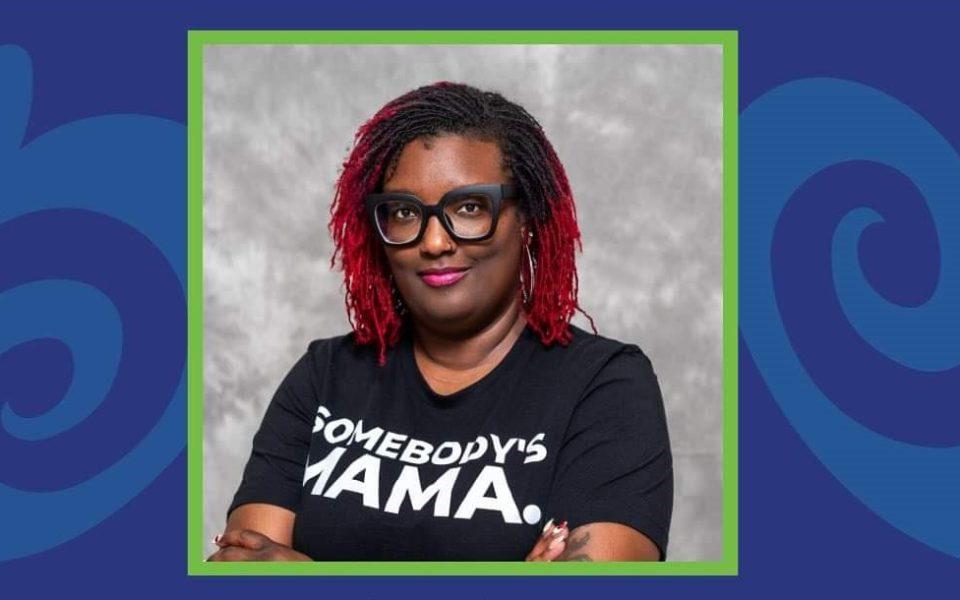On a late summer day in 2013, Keala Rodgers began to feel a heaviness on her chest. She took herself to the local urgent care where the healthcare professionals asked her questions about her lifestyle. What is her stress level like? What did she do for work? When Rodgers told them that she was an educator, they chalked up the pain in her chest as stress. She went home and convinced herself of the narrative that she had been sold.
“I was like, Maybe I am stressed,” she recalls.
But the problem persisted. She went to the urgent care at least two more times, but the doctors never took her issue seriously — that is until one September morning.
“I woke up that day in September and I couldn’t breathe,” Rodgers says.
She immediately went to the emergency room, where doctors took an X-ray and then a CT scan of her chest. Turns out, she had multiple pulmonary embolisms, blockages of the pulmonary arteries that send blood to her lungs. She spent a week in the hospital.

According to her doctors, the birth control that she was on — the NuvaRing — had caused the problems. She stopped using the method and opted for birth control pills instead. But then, a short while later, she got pregnant.
All of these personal experiences have driven Rodgers to focus on the issue of maternal health, pregnancy and reproductive rights in her new residency at the Hyers Theatre in Greensboro. The project, which kicks off on July 1, will include a series of writing workshops that culminate in spoken-word performances by Rodgers and others who participate in the workshops in mid July.
After her experience in 2013, Rodgers became a doula. Through that work, she’s heard multiple stories about women who have not felt heard or listened to in medical situations.
“There’s a lot of issues with women’s reproductive health in general, and Black women are the ones that bear the brunt of that problem,” Rodgers says.
It’s a well-known fact that Black women fare the worst when it comes to maternal-health outcomes. According to CDC data, Black patients are three times more likely to die than white patients due to pregnancy related complications. That’s true even with the changing numbers around maternal mortality.
“People need to talk about it,” says Rodgers, whose own pregnancies were filled with frustrations.
When she got pregnant with her first child, her daughter, more than a decade ago, Rodgers remembers experiencing intense back pain during labor. Because of the pain, she wanted to flip over and give birth on her hands and knees, but the doctors wouldn’t let her.
“I could not labor the way that I felt the most comfortable,” she says.
The only saving grace, Rodgers says, is the fact that her mother stayed by her side the entire time. She was like her own personal doula.
“She was my doula without the certification,” Rodgers says. “She knew how to comfort me.”
Now, as a doula herself, Rodgers works with clients to ensure that they have their needs heard and met through their pregnancy.
“They are very thankful that they have somebody who can speak for them when they couldn’t,” Rodgers says.

For her residency, Rodgers wants people to come and share their own stories — about the birthing process or the aftermath or even the time before.
“It is for anybody who has a perspective on Black maternal health,” she says.
That could be a doula, a friend, the mother, the father, the nurse or grandparent.
“I’m open to all of them,” she says.
The workshops, which will be held July 1, 8, 10 and 15, each focusing on a different stage of pregnancy. The first session will focus on conception; the second will focus on the growth of the baby; the third will focus on the birth. The last session on July 15 will focus on life after giving birth.
“I’m hoping that the participants will leave the workshop with stories shared, finding things that they identify with,” she says. “A lot of times, we go through things and we think we’re alone, but we’re really not. We need a space to share.”
On July 13, and again from July 18-20, Rodgers will host performances in which she’ll share her writings about birth and pregnancy. Participants from the writing workshops may also be invited to share their stories.
The hope, Rodgers says, is for people to feel heard and empowered in their experiences.
“If we can share those stories in this small community, we are armed with knowledge,” she says.
To participate in the free workshops, visit the Hyers Theatre in the Greensboro Cultural Center at 200 N. Davie St. The workshops start at 7 p.m. The shows will take place in the same space at the same time on July 13, 18, 19 and 20.
Join the First Amendment Society, a membership that goes directly to funding TCB‘s newsroom.
We believe that reporting can save the world.
The TCB First Amendment Society recognizes the vital role of a free, unfettered press with a bundling of local experiences designed to build community, and unique engagements with our newsroom that will help you understand, and shape, local journalism’s critical role in uplifting the people in our cities.
All revenue goes directly into the newsroom as reporters’ salaries and freelance commissions.


Leave a Reply